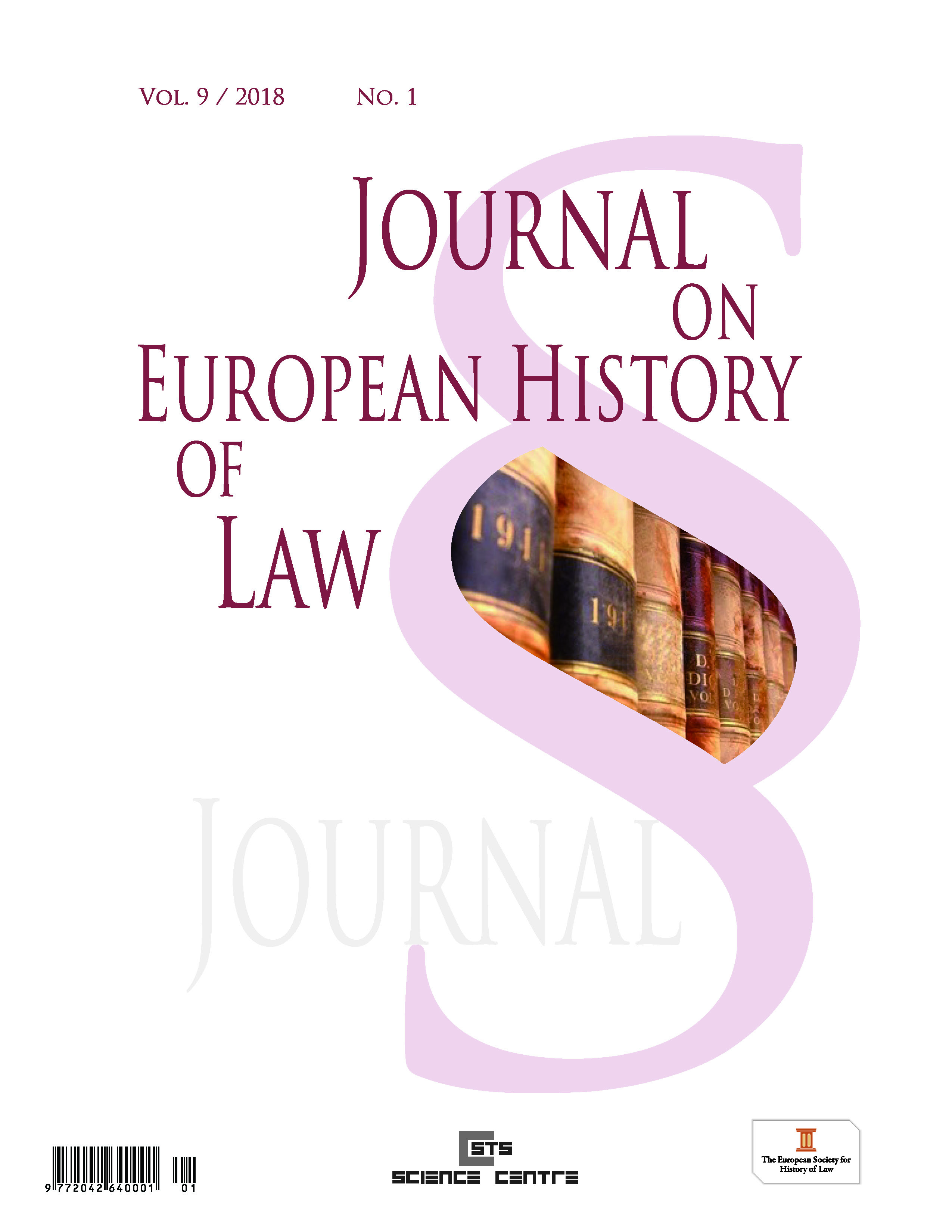Die Kameral- und die sog. politischen Wissenschaften und ihre Begründung von österreichischen Wirtschafts- und Verwaltungsreformen in der zweiten Hälfte des 18. Jahrhunderts unter besonderer Berücksichtigung der böhmischen Länder
Cameralism, so called Political Sciences, and the Rationale behind the Austrian Economic and Administrative Reforms in the Second Half of 18th Century Focusing on the Czech Lands)
Author(s): Ilona BažantováSubject(s): History, Law, Constitution, Jurisprudence, Economic history, Political history, 18th Century
Published by: Evropská společnost pro právní dějiny, z.s.
Keywords: cameralism; political sciences; Austrian economic; Joseph Sonnenfels; Joseph Ignatz Butschek;
Summary/Abstract: The purpose of the paper is to define cameralism and political sciences in the context of the second half of the 18th century in the Habsburg Monarchy considering in particular the lands of the Bohemian Crown, to characterise enlightened absolutism and to describe the ideational background and the formation of the scientific basis at the universities of Vienna and Prague. The paper shows that the basic thesis of cameralism that the welfare of the state depends on good and complete legislation, precise compliance with laws and educated civil service in combination with the enlightened philosophy formed the foundation of the modern codification efforts, the formation of tertiary education in economics and administration, legislative regulation necessary for economic welfare of the state, populationism and agricultural reforms. The political sciences, reflecting in terms of content and form the enlightened absolutism, became the theoretical foundation of the reforms of Austrian monarchs Maria Theresa and Joseph II.The paper introduces in more detail the professor and Hofrat, Joseph Sonnenfels (1733–1817) from Vienna, Joseph Ignatz Butschek (1741–1821) from the Prague University, and some of their economic ideas which reflected in the reforms and measures of Maria Theresa and Joseph II. The paper focuses on agriculture and the proposals for dividing land into lots, the so called Raabschen System, and the formation of Grain contributory fund.
Journal: Journal on European History of Law
- Issue Year: 9/2018
- Issue No: 1
- Page Range: 129-139
- Page Count: 10
- Language: German

